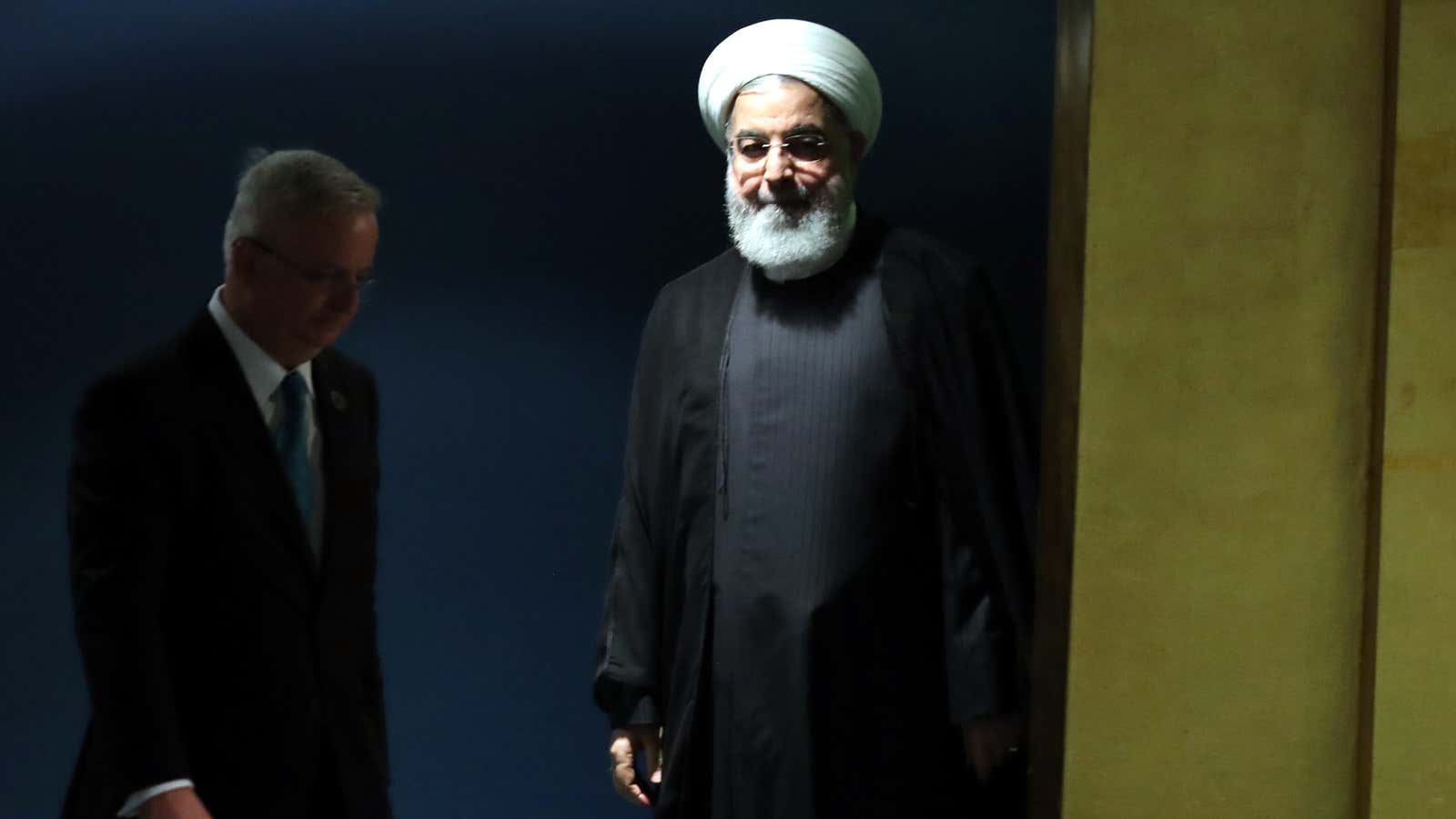Donald Trump’s determination to withdraw from the Iran deal is pushing American allies away from the US financial system.
On the sidelines of the United Nations General Assembly, the European Union agreed with China and Russia to create a new financial institution to aid companies seeking to do business in Iran. They hope such trade will induce Iran to keep its end of a 2015 deal to restrict its ability to develop nuclear weapons.
On Nov. 4, the US will re-impose sanctions against Iran designed to prevent any foreign companies from doing business there. The sanctions not only forbid the use of the dollar-based financial system employed in most world trade, but also threaten to punish companies who do business with Iranian firms through other channels.
The “Special Purpose Vehicle” described in a joint ministerial statement would provide a way around the US banking system for companies seeking to purchase Iranian oil or sell goods there, allowing them to make payments back and forth.
Sanctions experts are skeptical that will be enough to bring commerce back to the country, given US willingness to apply economic punishments to companies no matter how they do business in Iran. The new financial vehicle would only be useful to companies that operate outside the US system.
“As a practical matter, there are very few companies that can be entirely free of the US nexus,” Adam Smith, an attorney who worked to enforce sanctions as an official in the US Treasury Department, tells Quartz. He notes that dozens of major European companies have already ended their business in Iran because they want to do maintain their more lucrative trading relationships with the US.
“All else being equal, legitimate financial actors have reasons to worry about relying on a clearing house that seeks to avoid the U.S. financial system and only processes transactions with the world’s foremost state sponsor of terrorism,” Behnam Ben Taleblu, an Iran analyst at the Foundation for Defense of Democracies, told Quartz.
The move is another stress on the global economic system, once led and still dominated by the United States. Washington’s attempts to dictate global business practices were never well received, even when there was consensus about its goals. With the Trump administration abandoning a hard-won international consensus in the Iran deal, the symbolism of its European partners working with China and Russia on an international payment alternative is hard to miss.
“That’s what people are concerned about—that people will move away from the dollar, or try to find ways to do trade other than going through the New York banks,” Smith says, cautioning that it is too early to know if this new mechanism will be a significant source of trade, much less a harbinger of economic change. “The fundamental story here is that the EU and US think about the world differently in this regard.”
